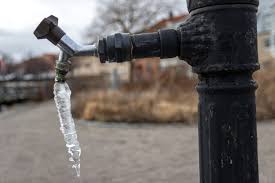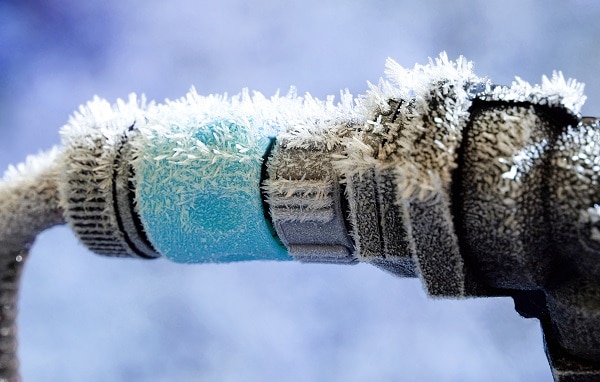The content following next relating to Prevent Freezing and Bursting Pipes is relatively compelling. You should take a look.

All house owners that stay in temperate climates have to do their ideal to winterize their pipes. It is something you should do during autumn prior to deep winter months truly begins. Failure to do so can spell disaster like frozen, broken, or burst pipes. Here are some handy winterizing hacks to keep your plumbing system protected even if the climate exterior is shocking.
Try a Hair Clothes Dryer or Warmth Weapon
When your pipes are almost freezing, your trusty hair clothes dryer or warm gun is a blessing. If the warm towels do not assist dislodge any working out ice in your pipelines, bowling hot air straight into them may help. However, do not use other items that create straight fires like an impact lantern. This can lead to a larger catastrophe that you can not manage. You might wind up harmful your pipelines while attempting to melt the ice. And also in the future, you may even end up melting your house. So be cautious!
Open Up Cabinet Doors Hiding Plumbing
It would certainly be practical to open up closet doors that are masking your pipelines when it's cool outside. They can be someplace in your kitchen area or restroom. This will enable the warm air from your heater to circulate there. Therefore, you avoid these revealed pipes from cold. Doing this little trick can keep your pipes cozy and restrict the potentially unsafe results of freezing temperature levels.
Take Some Time to Cover Exposed Water Lines
One easy as well as great hack to heat up freezing pipelines is to cover them with warm towels. You can cover them initially with towels. After securing them in place, you can put boiling water on the towels. Do it gradually to let the towels take in the fluid. You can additionally use pre-soaked towels in hot water, just don't forget to put on protective gloves to secure your hands from the warm.
Turn On the Faucets
When the temperature level drops and it seems as if the icy temperature level will certainly last, it will certainly aid to activate your water both indoors and also outdoors. This will certainly maintain the water streaming through your plumbing systems. In addition, the activity will certainly decrease the freezing procedure. Especially, there's no requirement to transform it on full blast. You'll wind up squandering gallons of water in this manner. Instead, aim for concerning 5 drops per minute.
Turn off Water When Pipes are Frozen
If you see that your pipelines are entirely frozen or virtually nearing that phase, transform off the main water valve right away. You will normally discover this in your cellar or laundry room near the heating unit or the front wall closest to the street. Transform it off as soon as possible to avoid further damage.
With even more water, more ice will load up, which will eventually lead to rupture pipelines. If you are uncertain concerning the state of your pipelines this winter, it is best to call a professional plumber for an examination.
All homeowners that live in pleasant climates should do their best to winterize their pipelines. Failure to do so can mean disaster like icy, cracked, or burst pipelines. If the hot towels do not assist displace any type of resolving ice in your pipes, bowling hot air straight right into them may help. Transform off the major water shutoff promptly if you see that your pipes are completely frozen or nearly nearing that phase. With even more water, even more ice will certainly load up, which will eventually lead to burst pipes.
PREVENT YOUR PIPES FROM FREEZING THIS WINTER
A Leading Cause of Property Damage
When the weather is taking a deep nose dive into the cold dreary days, the risk of your pipes freezing and potentially bursting skyrockets. Unfortunately, during these cold dreary months, burst pipes are the most common denominator for property damage. The pipes that are most at the risk are those that are in areas where it is most cold in your home. For instance, pipes located in interior places such as basements, attics, and your garage. Unfortunately, that doesn’t mean that the pipes running through your cabinets or exterior walls can’t freeze. Good news, however, is that you can do things to help prevent pipes from freezing.
How to Prevent Pipes From Freezing
Once the temperature starts to drop during the winter, you should be taking the proper measures needed to ensure that your pipes stay warm and that there is circulation of water through them. Some steps that experts may recommend could go against your better judgement when it comes to saving water and heat. However, it would go without saying that when expenses are compared, damaged pipes could put a bigger dent in your wallet than a water bill.
What Can I Do?
Keep your garage door closed. This is very important, especially if you have water supply lines running through your garage. Open your kitchen and bathroom cabinets to allow warm air to circulate through them. Allow air circulation throughout your home. Keeping the interior doors open will once again allow the warm air to circulate inside your home. Ensure your thermostat is running the same temperature throughout the night and day. If you plan to be away from home during the cold months, set your temperature no lower than 55° F. This should provide enough heat to keep the pipes warm and prevent any remaining water inside the pipes from freezing. For more of a long-term solution, add insulation to attics, basement, and other crawl spaces around your home. By allowing your faucet to drip, it will alleviate pressure in the system. This is important because the pressure that is created between the blockage and the faucet can potentially cause the pipes to burst. Allowing the faucet to drip will prevent the pressure from building up, therefore keeping the pipes from bursting. Seal any cracks, openings, and crawl spaces around your home to prevent cold air from coming inside. This keeps your pipes-not to mention your home-warmer and less susceptible to issues caused by freezing temperatures. For the pipes in your home that are easily accessible, applying electrical tape to them might prevent them from freezing over. This is a quick fix, as you can apply the tape directly to the pipe. There are two options for heating tapes. One turns on and off by itself when it senses heat is needed. The other type of heating tape needs to be applied when heat is needed and removed when not necessary. If you have exposed pipes in your home, you can check this website to take a look at a few options that would be available at a shop near you.

Do you really like reading about Winterizing Your Pipes? Give feedback down below. We would be interested to listen to your thinking about this write up. In hopes that you visit us again in the near future. For those who liked our blog posting plz be sure to share it. I truly appreciate reading our article about Prevent Freezing and Bursting Pipes.
Book Service